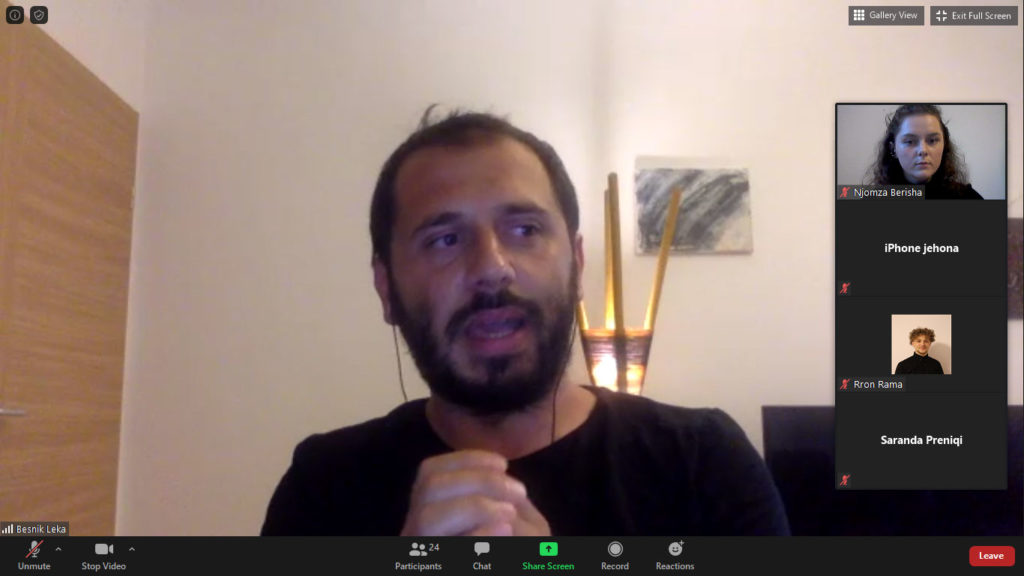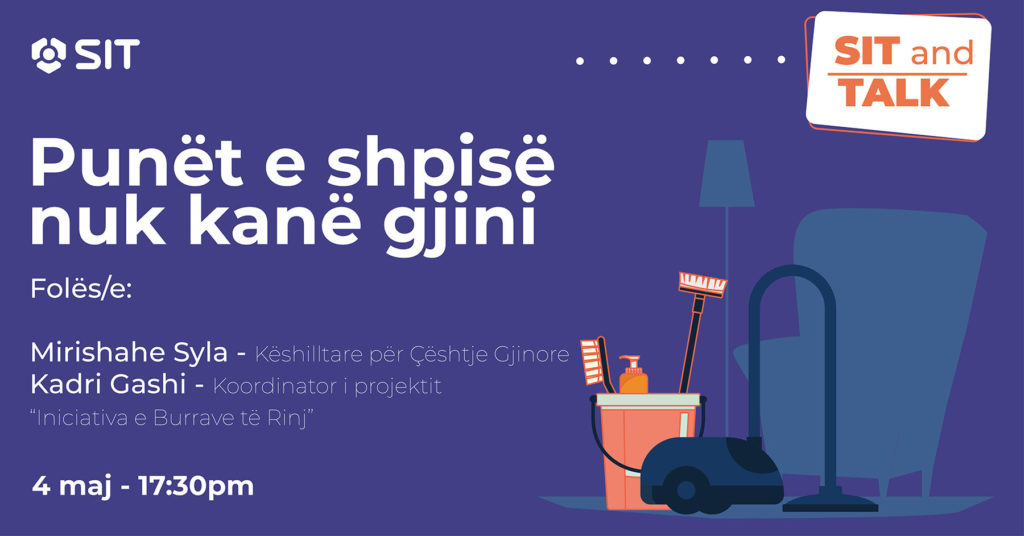Reorganizing life and coexistence within the house in this time has affected everyone. Seen from a gender perspective, this reorganization tends to suppress women even further.
What does not change in this period either is the need for food, care and hygiene, and all these in a society like ours – are mainly done by women. The division of housework based on gender which mainly comes as a consequence of setting gender roles, puts the main burden of the responsibility within the house on women.
In economic terms, according to GDP (General Domestic Product) standards, women’s work within the house is considered unproductive. Consequently, according to this logic, the time women spend doing chores is considered as ‘rest’ but we are aware that this is not the case, especially at this time.

Having this in mind, our partner organization SIT – Center for Counseling, Social Services and Research started the “Housework has no Gender” campaign within which they held a discussion with this very topic with Mirishahe Syla – Gender Advisor at SIT, and Kadri Gashi – Coordinator of the “Young Men Initiative” project at SIT. Jointly, with members of “Be a Man” Club, and other participants, they discussed the added burden of housework and the gender gap in it; how does this affect women’s and men’s life, the implications during the crisis, toxic masculinity, and why is it important sharing the chores.

SIT started this campaign aiming to problematize this issue and moving the discussion from private to the public sphere.
Another discussion within this campaign followed – “Challenging and Redefining the ‘Manhood’ in Kosovo, with the sociologist Besnik Leka as a panelist.
In the psychoanalytic context, Terry Kupers describes toxic masculinity as “the need to aggressively compete and dominate others” and as “the constellation of socially regressive male traits that serve to foster domination, the devaluation of women, homophobia and wanton violence.
The toxic masculinity concept refers to social and cultural norms which are harmful not only for men, but for the society in general. This includes being aggressive, violent, not being able to express positive emotions, and a lot of other norms imposed on boys and men by patriarchal mentality, which are not healthy at all. Conceptually, toxic masculinity explains how and why men have dominant social roles on women and other gender identities, which are perceived as “feminine” in a given society.
With him, “Be a Man” club members, and other participants, SIT discussed how we can break the toxic masculinity cycle; the crisis coming from this masculinity; which are the disadvantages of this mentality for boys and men, and which are their benefits from changing these behaviors.
This campaign will also comprise other activities as: research on men’s and boys’ engagements in housework, video messages from people with influence, infographics with data from the research, etc.
The activity is implemented by SIT – Center for Counseling, Social Services and Research within the framework of the Young Men Initiative II – The Men and Boys as Partners in Promoting Gender Equality and prevention of Youth Extremism and Violence in the Balkans project, supported by CARE International Balkans, Austrian Development Cooperation and Oak Foundation.
#YMI #CareInternational #CARE #ProgramY #ProgramE #SvicarskauBiH #AustrianDevelopmentAgency #OakFoundation